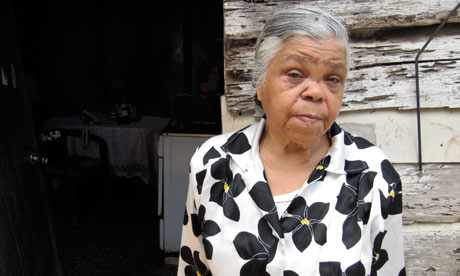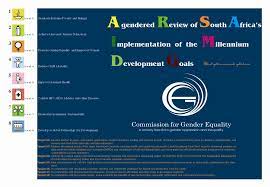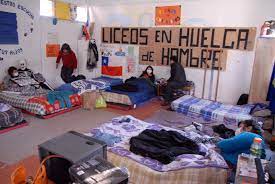
Marta Orellana
In the 1940s, the United States sent doctors to Guatemala to address syphilis, gonorrhea and chancroid. Not to stop them but rather to spread them. Specifically, the U.S. Public Health Service wanted to know if penicillin after sex would prevent sexually transmitted diseases. So the doctors went to Guatemala and `recruited’ some 5500 soldiers, mental patients, children, sex workers into the program. They told them nothing, actually less than nothing. They infected the mental patients, all women; the children, all girls in orphanages; and the sex workers, all women, and then sent them to the soldiers. For Guatemalans, this was “the devil’s experiment.”
Marta Orellana was one of those orphans. She was nine years old when she was injected. For years, for decades, she lived with syphilis but was told that she had “bad blood”. She was in pain, and tired, her entire life. As she puts it, a “loving and patient” husband helped her overcome intimacy issues.
More than sixty years later, the United States [a] acknowledged the event, [b] apologized to the government of Guatemala, and [c] appointed a commission. The commission met yesterday and heard `shocking’ testimony. The story that attracted the most attention thus far is this: “a woman who was infected with syphilis was clearly dying from the disease. Instead of treating her, the researchers poured gonorrhea-infected pus into her eyes and other orifices and infected her again with syphilis. She died six months later”.
There are other stories, and others will follow … of injections, of pain and suffering, of abuse; of torture, grand and petty, slow and swift. Of 13,000 infected Guatemalans, around 700 received any treatment. 83 died.
The Commissioners have found the research to have been “grievously wrong”, “chillingly egregious”, “morally culpable”, unjust, tragic, shameful, reprehensible, “cruel and inhuman”, unethical.
The medical researchers did not act in a vacuum nor were they without context or history. The problem isn’t that they were unethical but rather that they were ethical men engaged in `ethical’ violence. In the same way that the experiments in the Nazi death camps, occurring in the same period, didn’t require justification because they were part of a moral crusade, a longstanding war against Jews, people of color, gay and lesbian people, the disabled, the experiments in Guatemala didn’t require justification because they were part of a longstanding war against the indigenous and the rural, against women of color, against the weakest and the most marginal who somehow … somehow … pose the ultimate threat.
The US medical researchers in Guatemala were not rogues, renegades, or outlaws. They were ethical White men who saw as part of their dominion over all living things the obligation to decide the fate, and design the excruciating death, of women, people and nations of color. The United States of America has apologized to the Republic of Guatemala. Marta Orellana must just live with the devil that haunts her.
(Photo Credit: Rory Carroll / The Guardian)





